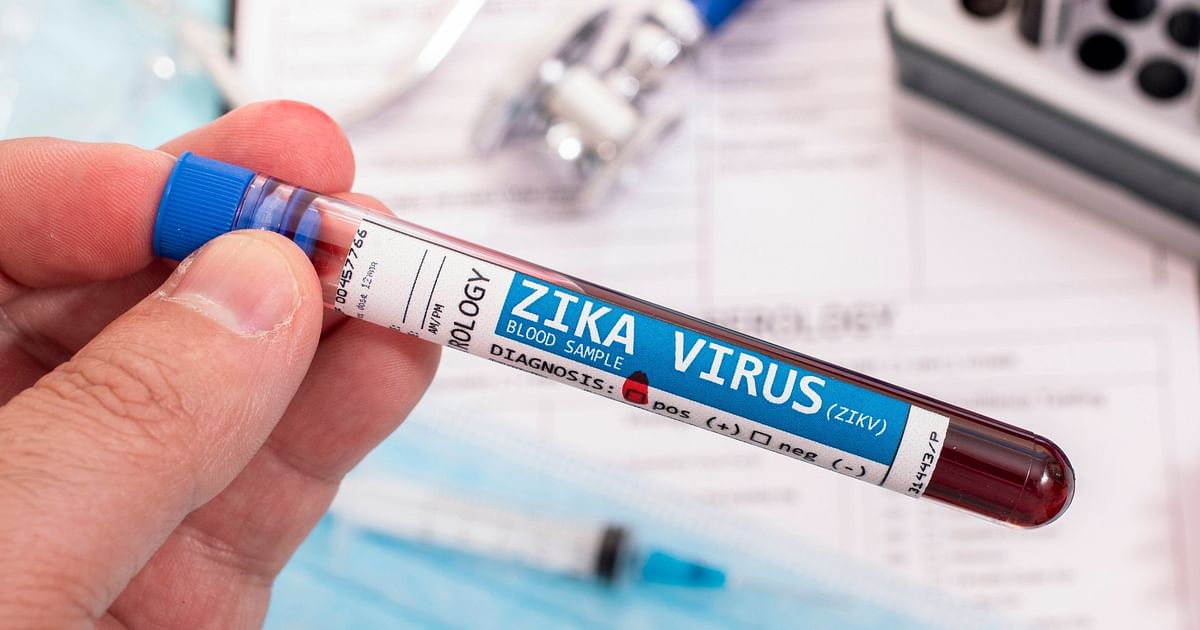After at least eight cases of Zika virus infection were reported in Maharashtra, the Ministry of Health and Family Welfare on July 3 advised all states to maintain a constant state of alert. The ministry has asked pregnant women to get tested for the virus and to monitor the development of the foetus of those who test positive. The advisory also asked states to intensify entomological surveillance and strengthen vector control activities.
Compared to COVID-19, Zika virus is a relatively harmless virus. Infection is mild, recovers quickly, and does not require hospitalization. However, Zika virus infection is dangerous for pregnant women and future parents, as infection during pregnancy has life-changing consequences. In 15% of infected pregnancies, babies are born with severe birth defects. Congenital Zika syndrome leaves babies with significant physical and intellectual disabilities. Children depend on their parents for all activities throughout their lives.
The first Zika case in India was reported in Gujarat in 2016 and since then cases have been reported in at least eight states – Delhi, Karnataka, Kerala, Madhya Pradesh, Maharashtra, Rajasthan, Tamil Nadu and Uttar Pradesh.
Routine ultrasound scans can detect disorders in the baby (such as microcephaly, a small head size). If detected early, future parents have the opportunity to decide whether to continue the pregnancy. The revised guidelines allow medical termination of pregnancy at any time during pregnancy if the baby has a congenital disorder unfit for life. However, there are medical and ethical restrictions on termination of pregnancy. Ultrasound scans may not detect all congenital disorders. Among the most vulnerable women in rural and poor areas, even ultrasound scans during pregnancy may not be available.
The Zika virus outbreak should therefore be an opportunity to spread public health messaging that can help educate prospective parents and the public about children with disabilities and the medical, rehabilitation services, and legislation available in India to empower and improve the quality of life for children with disabilities and their parents. Across India, children with disabilities are rarely seen in public spaces. There is little awareness among the general public, and even among private physicians, that rehabilitation services such as physiotherapy and occupational therapy can improve the functioning of children with disabilities if initiated soon after birth.
District Early Intervention Centres have been set up in district hospitals across the country, where concerned parents can bring their children for consultations. Services such as physiotherapy and occupational therapy are provided free of charge, as are assistive devices such as wheelchairs and orthotics such as leg braces for children with mobility issues. These centres have psychologists and social workers to provide psychosocial support to parents. They are required to help register people with disabilities and provide information about special schools and inclusive education. The quality of services provided by these centres varies across India, but public demand is likely to lead to increased investment in these services.
Disability awareness messages need to point out that rehabilitation can help children reach their innate potential. This message is important to protect parents from the financial risks of trying unproven treatments in the hope of a cure. Families and society need to adapt to children who are born with permanent disabilities. Messages need to publicize several laws that guarantee the rights of children with disabilities. These facts are not well known to the general public.
While the public health focus is rightly on protecting pregnant women and preventing mosquito breeding, it is important to point out that many birth defects cause lifelong disabilities. The impact of Zika virus infection on a pregnant woman today will not be known until the baby is born in nine months. By that time, media attention may have shifted and the parents will be left to deal with the life-changing event on their own. For this reason, public messaging during a Zika outbreak must be accompanied by messages that emphasize the care and inclusion of children with disabilities.
(Anita Carr is a birth defects researcher and chairperson of the Birth Defects Research Foundation, Pune.)
Disclaimer: The views expressed above are the author’s own and do not necessarily reflect those of DH.

